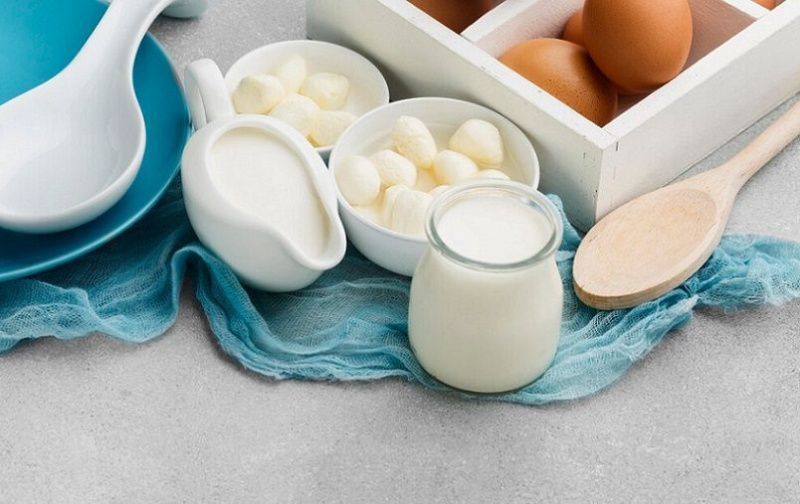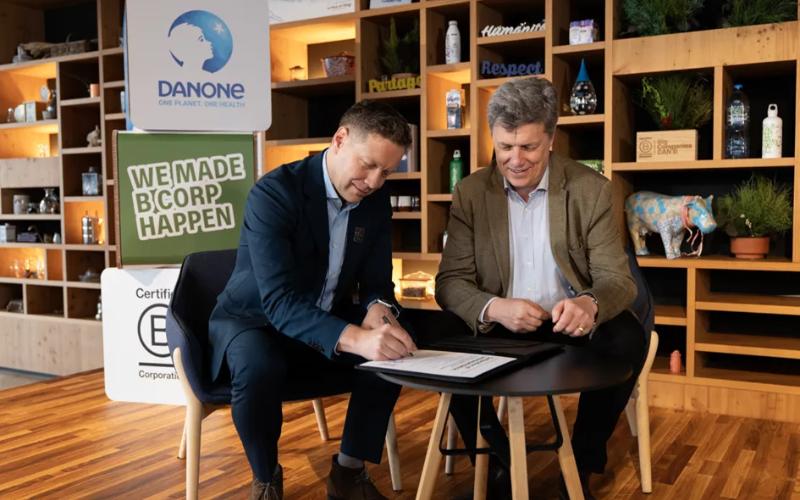Brexit Border Checks Threaten Fine Food Imports from EU, Warn Sellers
Since Britain's departure from the EU's single market in 2021, Panzer's delicatessen in north west London has witnessed a concerning trend: the loss of 37 suppliers from the European Union. Now, as the UK introduces new border checks, owner David Josephs fears that more suppliers will follow suit.

Although Britain voted to leave the EU in 2016, the complexities of disentangling supply chains and establishing customs borders have delayed the implementation of new rules until this year. Exporters from the EU have been required to provide health certificates for chilled and frozen meat, fish, cheese, dairy products, and certain cut flowers since January 31. This demand, coupled with higher charges, has led smaller British retailers and wholesalers to experience significant delays in receiving goods.
The impending initiation of physical checks from April 30, along with increased charges, has sparked concerns among sellers about the potential impact on the availability and freshness of fine artisan foods such as charcuterie, cheese, pasta, and olive oil. Patricia Michelson, owner of La Fromagerie, laments the growing paperwork burden faced by independent producers, making it increasingly challenging to source unique products from different regions.
John Farrand, managing director of the Guild of Fine Food, warns that the new hurdles jeopardize Britain's diverse food and drink landscape. He highlights the disproportionate burden these bureaucratic requirements place on smaller producers and retailers, potentially resulting in diminished choice and quality in the market.
While the government argues that these checks are necessary to prevent diseases and pests from entering Britain and to level the playing field for British exporters, critics remain skeptical. Delicatessen owner Josephs expresses concern about the looming disruptions, particularly as some suppliers question the economic viability of supplying the UK.
Nick Carlucci, sales director of Tenuta Marmorelle, shares his firsthand experience of the challenges posed by the January changes, which increased costs and lead times for imported goods. Facing additional expenses and logistical hurdles, Carlucci anticipates a significant impact on profit margins, ultimately necessitating price increases for consumers.
As uncertainty looms over the frequency of checks and the extent of disruption, importers like Andreas Georghiou fear the worst. With small producers ill-equipped to navigate the certification process, many are opting out of supplying the UK altogether.
The impending changes have sparked disbelief and concern among industry professionals, highlighting the profound implications of Brexit on the fine food import market.
The impending initiation of physical checks from April 30, along with increased charges, has sparked concerns among sellers about the potential impact on the availability and freshness of fine artisan foods such as charcuterie, cheese, pasta, and olive oil. Patricia Michelson, owner of La Fromagerie, laments the growing paperwork burden faced by independent producers, making it increasingly challenging to source unique products from different regions.
John Farrand, managing director of the Guild of Fine Food, warns that the new hurdles jeopardize Britain's diverse food and drink landscape. He highlights the disproportionate burden these bureaucratic requirements place on smaller producers and retailers, potentially resulting in diminished choice and quality in the market.
While the government argues that these checks are necessary to prevent diseases and pests from entering Britain and to level the playing field for British exporters, critics remain skeptical. Delicatessen owner Josephs expresses concern about the looming disruptions, particularly as some suppliers question the economic viability of supplying the UK.
Nick Carlucci, sales director of Tenuta Marmorelle, shares his firsthand experience of the challenges posed by the January changes, which increased costs and lead times for imported goods. Facing additional expenses and logistical hurdles, Carlucci anticipates a significant impact on profit margins, ultimately necessitating price increases for consumers.
As uncertainty looms over the frequency of checks and the extent of disruption, importers like Andreas Georghiou fear the worst. With small producers ill-equipped to navigate the certification process, many are opting out of supplying the UK altogether.
The impending changes have sparked disbelief and concern among industry professionals, highlighting the profound implications of Brexit on the fine food import market.











